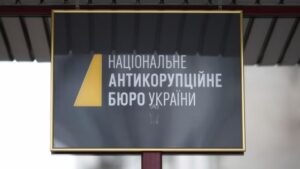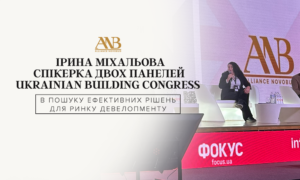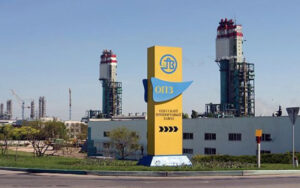
Shares of biopharmaceutical company Enlivex Therapeutics, whose securities are traded on the Nasdaq exchange, rose after the announcement of its intention to raise $212 million to create a “digital treasury” based on the RAIN token, against which the value of the token itself increased by 115% over the past day.
Enlivex plans to conduct a private placement (PIPE), in which it will issue 212 million new shares at a price of $1 per share, which is 11.5% higher than last Friday’s closing price. The company intends to use all the funds raised to purchase RAIN tokens, while Enlivex will retain its core business profile in biopharmaceuticals.
The market reacted positively to the announcement: at the end of trading on Monday, Enlivex’s share price rose by about 13%, while the RAIN token rose by 115% over the past 24 hours, the publication notes.
RAIN is the native token of the decentralized prediction market on the Arbitrum blockchain, where users can bet on the outcome of real-world events — from elections to show business events — without intermediaries, using smart contracts for settlements and transparency.
Enlivex also announced that after the deal is completed, former Italian Prime Minister Matteo Renzi will join the company’s board of directors, which management expects will strengthen the issuer’s international position and increase investor confidence.
Enlivex’s interest in prediction markets coincides with the rapid growth of this segment after the 2024 elections: the Polymarket platform has attracted about $2 billion in investments from ICE, the parent company of the New York Stock Exchange, and Kalshi has attracted about $1 billion from Sequoia Capital and other investors, No Worries emphasizes, citing a statement by Enlivex CEO Chai Novik that institutional interest in leading prediction market players indicates the maturity of the industry and its potential.

Starting November 24, Ukraine’s largest chain of gas stations, UKRNAFTA, is launching a new round of fuel discounts, allowing customers to save up to 9 UAH per liter of gasoline when combining promotional offers, according to a company statement.
According to the press release, a basic discount of UAH 2/liter is provided when using the UKRNAFTA mobile app. Additionally, customers can receive:
a discount of 1 UAH/liter when refueling 20 liters or more and purchasing coffee;
a discount of 1 UAH/liter when refueling 20 liters or more and purchasing winter windshield washer fluid;
a discount of 1 UAH/liter when refueling 20 liters or more and purchasing a hot dog;
a discount of 2 UAH/liter when refueling 40 liters or more (a discount of 1 UAH/liter applies to volumes of 25–40 liters);
up to a discount of 2 UAH/liter – additional discounts from partners (Nova Poshta, Ukrzaliznytsia, YasnoLove, Vodafone).
The company specifies that when all promotions are combined, the total savings reach 9 UAH per liter of gasoline. In addition, when paying with a UKRSIBBANK World Elite card, the total savings on gasoline and diesel fuel can be up to 10 UAH/liter.
In addition to fuel discounts, until the end of November, the chain is running a promotion with a 50% discount on burgers and vitamin teas in cafes at UKRNAFTA gas stations.
JSC Ukrnafta is Ukraine’s largest oil production company and the operator of the largest national gas station chain, UKRNAFTA. In 2024, the company took over the management of Glusco’s assets. In 2025, it completed an agreement with Shell Overseas Investments BV to purchase the Shell network in Ukraine. In total, it operates 662 gas stations.
The company is implementing a comprehensive program to restore operations and upgrade the format of its network of gas stations. Since February 2023, it has been issuing its own fuel vouchers and NAFTAKarta cards, which are sold to legal entities and individuals through Ukrnafta-Postach LLC.
The largest shareholder of Ukrnafta is Naftogaz of Ukraine with a 50%+1 share.
In November 2022, the Supreme Commander-in-Chief of the Armed Forces of Ukraine decided to transfer the company’s corporate rights, which belonged to private owners, to the state, and they are now managed by the Ministry of Defense.

As of November 25, 2025, Ukrainian farmers have sown 6.429 million hectares of winter crops, or 98.1% of the projected production area, while on November 26 last year, 6.14 million hectares were sown.
According to data from the Ministry of Economy, Environment, and Agriculture published on its website, Ukrainian farmers have already sown 5.34 million hectares of winter grain crops, compared to 5.06 million hectares a year ago.
At the same time, 4.69 million hectares (4.38 million hectares) were sown with winter wheat, 586,100 hectares (611,100 hectares) with barley, and 66,300 hectares (68,600 hectares) with rye.
Chernivtsi and Cherkasy regions are among the leaders in grain crops. Grain sowing has already been completed in Dnipropetrovsk, Zaporizhzhia, Zakarpattia, Ivano-Frankivsk, Mykolaiv, Odesa, Poltava, Rivne, and Chernihiv regions, according to the report.
According to the report, as of November 25, rapeseed had been planted on an area of 1.084 million hectares (last year – 1.08 million hectares), which is 96.5% of the projected area. Farmers in all regions have virtually completed sowing.
The Ministry of Economy previously published forecast figures for the area sown with winter crops for the 2026 harvest. Ukrainian farmers are expected to reduce the area sown with winter crops by 5.1% to 5.368 million hectares. At the same time, the area under winter wheat will be reduced by 4.4% to 4.778 million hectares, winter barley by 2.7% to 576,100 hectares, and winter rapeseed by 5.5% to 1.114 million hectares. At the same time, winter rye crops will increase by 7.6% to 69.3 thousand hectares.

Corruption in the energy sector is systemic and long-standing. Since 2022, the National Anti-Corruption Bureau (NABU) and the Specialized Anti-Corruption Prosecutor’s Office (SAP) have been investigating five high-profile cases in the energy sector, according to anti-corruption authorities.
On Tuesday, NABU and SAP posted an infographic on criminal cases in the energy sector on their Telegram channel, which, in particular, highlights the Energoatom case with losses to the state of UAH 100 million, which is currently being considered in court, and the Ukrenergo case, with losses of UAH 600 million, which is also at the stage of judicial review.
In addition, the completion of the pre-trial investigation of the Kharkivoblenergo case, with losses to the state amounting to UAH 12.6 million, and the court’s consideration of the case of bribery by the Deputy Minister of Energy are mentioned, as well as the Energoatom case on kickbacks from contractors, which is still under investigation.
“Not just Midas: 5 high-profile cases of NABU and SAP in the energy sector since 2022,” the anti-corruption authorities said in a statement.
“The criminal organization that was exposed during Operation Midas is only part of a much bigger problem. Corruption in Ukraine’s energy sector is systemic and long-standing. NABU and SAP cases in this area cover various levels: from direct bribery in the ministry to large-scale market manipulation and theft of resources at state-owned enterprises,” NABU and SAP note.
The statement notes that anti-corruption agencies continue to consistently expose these crimes regardless of the political context or the names of those involved. “Cases are brought to court, and new challenges receive an immediate response. The work to clean up one of the most strategic and at the same time most corrupt industries will continue in the future,” NABU and SAP assure.

Irina Mikhalyova, marketing director of Alliance Novobud development company, took part in the Ukrainian Building Congress (UBC), which took place on November 21 at the Parkoviy ECC in Kiev, having acted as a speaker and moderator of two discussion panels dedicated to affordable housing and the state mortgage program “єOselia”.
According to the press service of Alliance Novobud, Mikhalyova moderated the panel “Affordable Housing: How to Make Real Estate Affordable for Ukrainians”, which was attended by representatives of development companies, banks and government institutions – in particular, EcoBud Building Group, Ukrfinjitlo, State Fund for Promotion of Youth Housing Construction, Sky Bank and developer Intergal-Bud. The participants discussed the combination of state programs, market instruments of developers and bank products to form an affordable housing market under war conditions.
Special emphasis was placed on the impact of the war on purchasing power, construction rates and financing of new projects. According to Mikhalyova, state support programs, such as “єOselia”, in wartime become not only a financial instrument for the market, but also an indicator of the state’s confidence in the industry. She noted that participation in such initiatives helps developers to stabilize sales and stimulate demand for primary real estate.
In addition, CMO Alliance Novobud was a speaker at the discussion panel “єOsela – the state’s investment in recovery”, where developers and bankers shared their experience of working with the program, assessed its impact on the sales structure and discussed the prospects of reconfiguring the loan product to primarily finance primary housing. Ms. Mikhalyova confirmed the company’s readiness to develop partnership formats with banks for additional support of buyers.
Alliance Novobud is a development company operating in the residential real estate market of Kyiv and Kyiv region for more than 18-20 years, specializing in business class projects in the capital and modern residential complexes in the suburbs. According to the company, under the brand Alliance Novobud projects are realized in Kiev (Montreal House, club house Illinsky House) and Brovary (in particular, Krona Park II, Madison Gardens, “Forest Quarter” and “Lavandovy”).
According to the rating of LUN service and NV edition, at the end of 2024 Alliance Novobud entered the top 20 largest developers of Kyiv and the region, taking 15th place by the number of commissioned apartments, which, according to analysts, indicates the stability of the company in the war conditions. Industry reviews indicate that since its establishment the developer has built more than two dozen residential buildings, and its projects are characterized by monolithic-frame construction technology and medium- and business-class positioning.

The state is preparing a repeat auction for the privatization of Odesa Port Plant (OPP) to find a strategic investor, possibly at a reduced price, according to the Ministry of Economy, Environment, and Agriculture after the auction scheduled for November 25 with a starting price of UAH 4.49 billion failed due to a lack of participants.
“The conditions for privatizing this asset were difficult from the outset, as the facility requires significant investment and specialized expertise. There is interest in the company on the market, but at the same time, international partners have emphasized the need for additional time and adjustments to certain conditions for full participation,” the Ministry of Economy said in a statement on Telegram.
The ministry added that in the current conditions of martial law and high risks, large industrial assets face a number of objective challenges: for OPZ, these are not only market conditions and security factors, but also the total cost, which may exceed the starting price, in particular, investment obligations.
“In order to increase the chances of selling assets at market value, the ministry supported a bill by a group of MPs that provides for the possibility of putting up large privatization objects with a gradual reduction in the starting price,” the message says.
The Ministry of Economy reminded the auction winner of the main investment obligations: to maintain the main activities of the plant; to invest at least UAH 500 million in the modernization of facilities and the development of production; repay within 12 months the debts on wages and to the budget, which as of the end of June 2025 exceeded UAH 366.8 million; gradually repay overdue accounts payable (except for claims of sanctioned persons and structures associated with the Russian Federation/Belarus) and comply with environmental and social standards.
OPZ’s revenue for January-June this year amounted to UAH 322.63 million, while its net loss was UAH 280.79 million. In 2024, the plant increased its revenue to UAH 944.22 million from UAH 494.57 million a year earlier, but its net loss increased to UAH 1 billion 839.3 million from UAH 1 billion 94.58 million.
Acting Chairman of the Board and Director of OPZ Yuriy Kovalsky said in an interview with NV Business in August this year that in August 2024, the plant’s management tried to launch one of the two ammonia units, but this step was not successful. Since then, OPZ has been converted to grain transshipment, and this activity has been the company’s only source of income, but at the end of June, as a result of a Russian air attack, the storage facilities were significantly damaged, which suspended transshipment operations. According to Kovalsky, OPZ’s partner in grain transshipment is the trader V AGRO LLC. In the 2024-2025 marketing year, approximately 638,000 tons of grain were transshipped: 625,000 tons of corn and 12,700 tons of soybeans.
The acting chairman of the board also said that OPZ had significantly optimized its costs, sold non-core assets, and was actively working with creditors, in particular Naftogaz of Ukraine, to offer a future investor a viable debt structure of about UAH 2.5 billion.
Kovalsky noted that for security reasons, OPZ does not plan to resume production in the near future, but is maintaining its production lines in full technical readiness so that it can resume operations as soon as possible. He estimated the cost of restarting the plant at approximately 30 million cubic meters of gas.
Ukraine has tried several times to privatize the enterprise, but without success. In 2009, the winner of the tender for the sale of OPZ was Nortima, a company controlled by the former owner of PrivatBank, Ihor Kolomoisky, for UAH 5 billion. However, the tender commission refused to recognize the company as the winner due to the low price and suspicion of collusion among the participants, and declared the tender invalid.
Then, in 2016, Ukraine twice put 99.567% of OPZ shares up for sale: in July at a starting price of UAH 13.175 billion, and in December at a reduced price of UAH 5.16 billion, but both times without success. The lack of interest in Odesa Port Plant was linked, in particular, to its debt of over $250 million to Dmitry Firtash’s structures, as confirmed by the Stockholm Arbitration Court.
At the end of July 2018, the State Property Fund of Ukraine selected a consortium led by Pericles Global Advisory, consisting of White&Case LLP, Kinstellar, KPMG Ukraine, and SARS Capital, as an investment advisor for the privatization of Odesa Port Plant. Before the coronavirus crisis, it was expected that the company could be put up for sale as early as August 2020, but the Fund then postponed these plans until 2021 and ultimately did not implement them. In the last years before the war, fertilizer production at the company was carried out intermittently on a tolling basis.